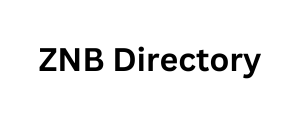In the high-stakes world of healthcare, marketers face a unique set of challenges: long decision cycles, complex buying processes, and highly informed stakeholders. Surprisingly, these challenges closely mirror the B2B marketing landscape. So what happens when B2B marketers start thinking like healthcare marketers? They unlock strategies that drive quality leads, build trust, and nurture long-term relationships.
1. Understanding the Buyer’s Journey with Empathy
Healthcare marketing is built on empathy—understanding the deeply personal and complex decisions patients make. B2B leads may not be facing life-or-death scenarios, but their decisions often affect the future of their companies. Like healthcare consumers, B2B buyers research, analyze, and hesitate before committing.
Takeaway: B2B marketers can learn to map their buyer’s journey with empathy. Instead of pushing a product, offer solutions that address the buyer’s concerns and pain points.
2. Content That Educates Before It Sells
Healthcare marketers rely heavily on educational content—whitepapers, guides, videos—designed to inform and build trust. This mirrors what B2B buyers crave: informative, data-backed resources that empower decision-making.
Takeaway: Prioritize thought leadership. Create content that positions your brand as a knowledgeable partner, not just a vendor.
3. Precision Targeting Using Persona-Based Strategies
Hospitals and health systems create detailed job function email database patient personas to segment their outreach. In B2B, personas help target decision-makers more effectively, especially in account-based marketing (ABM).
Takeaway: Don’t settle for broad targeting. Leverage data to develop personas and deliver highly personalized campaigns that speak directly to your audience’s roles and responsibilities.
Don’t settle for broad targeting. Leverage data to develop personas and deliver highly personalized campaigns that speak directly to your audience’s roles and responsibilities.
4. Omnichannel Engagement: Meeting Buyers Where They Are
Healthcare marketers engage across email, social media, mobile apps, and even in-office messaging. The goal? Be present at every touchpoint. B2B buyers are just as digitally savvy—they move fluidly across platforms before engaging with sales.
Takeaway: Adopt a seamless omnichannel securing phone data during transfers or migrations strategy that reinforces your brand and messaging across multiple platforms.
5. Lead Nurturing Through Long-Term Relationships
Healthcare decisions often involve lengthy consideration periods—and healthcare marketers are masters of the long game. They use drip campaigns, retargeting ads, and triggered emails to stay top-of-mind.
Takeaway: Don’t give up after the first click. Use marketing automation to stay in touch over time and move leads through the funnel with patience and strategy.
6. Data Privacy and Trust as Differentiators
With strict regulations like HIPAA, healthcare marketing has privacy baked in. B2B marketers can adopt the same mindset: treat data with integrity, emphasize security, and build trust as a brand differentiator.
Takeaway: Build trust by respecting privacy and being transparent about how user data is handled.
7. Harnessing the Power of Testimonials and Case Studies
Patient testimonials are powerful taiwan lists in healthcare—they offer validation and emotional reassurance. In B2B, peer influence is just as important. Prospects want to know: who else trusts you?
Takeaway: Use real success stories to showcase outcomes. Let your current customers be your advocates.
